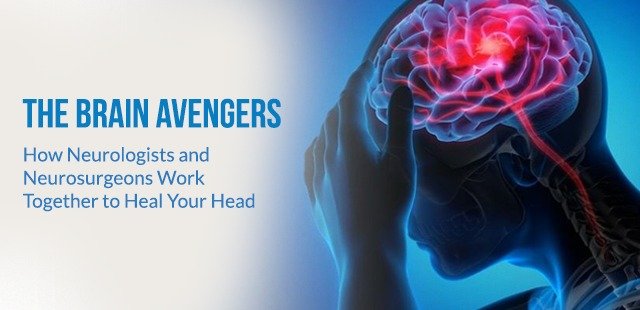The Brain Avengers: How Neurologists and Neurosurgeons Work Together to Heal Your Head

What is the first thing that comes to mind when you hear “brain”.
For me it is amazing and full of complexities that a normal human can understand. It is solely responsible for every action and works non-stop every moment until the day we die. The complexities carry themselves when it comes to brain injury.
To you it may seem like just a tiny bump from falling down or just a pain in the nerves but the roots of brain injury may be deep down and should never be ignored.
These injuries are far away from our understanding and that’s why it’s important to know about Neurologists and Neurosurgeons medical superheroes working together as a powerful team to diagnose, treat, and help heal brain injuries.
The Neurology Know-How Crew:
Imagine your brain as a vast electrical network. Neurologists are the master electricians of this intricate system. They use a variety of tools to assess how your brain is functioning after an injury.
- MRI and CT Scans: These imaging scans allow neurologists to see inside your head and identify any physical damage caused by the injury.
- Neurological Exams: These involve testing your reflexes, coordination, memory, and other cognitive skills to see if any areas of your brain are struggling.
Think of a neurologist as a detective, piecing together the puzzle of your brain injury based on your symptoms, medical history, and the results of these tests. Once they have a clear picture, they can develop a treatment plan to help your brain heal and regain function.
The Surgical SWAT Team:
Sometimes, brain injuries require a more hands-on approach. This is where the neurosurgeons, the SWAT team of the brain world, step in. These highly skilled surgeons perform delicate procedures to address injuries like blood clots, skull fractures, or tumours that might be hindering brain function.
Imagine a neurosurgeon wielding the latest surgical tools with incredible precision, like a tiny robotic maestro. Their goal is to minimise further damage and create the optimal environment for your brain to heal.
Working in Tandem: A Powerful Partnership
Neurologists and neurosurgeons don’t work in isolation. They collaborate closely throughout the entire process. Here’s a glimpse into their teamwork:
- The Pre-Surgery Huddle: Before any surgery, the neurologist and neurosurgeon will discuss the patient’s case, analysing scans and test results to determine the best surgical approach.
- The Surgery Itself: During surgery, the neurologist might be present to monitor brain activity and provide real-time feedback to the neurosurgeon.
- The Road to Recovery: Once the surgery is complete, the neurologist takes centre stage again, monitoring your recovery, managing any post-surgical complications, and recommending rehabilitation strategies.
Rehabilitation and Recovery
Brain injuries can have long-lasting effects, impacting your memory, speech, coordination, and even your emotions. This is where rehabilitation specialists come in. These therapists work tirelessly with you to retrain your brain and help you regain lost skills. Neurologists often work hand-in-hand with these specialists to create a personalised rehabilitation plan for optimal recovery.
The Importance of Early Intervention
Time is of the essence when it comes to brain injuries. Seeking medical attention quickly after a head injury is crucial. Early diagnosis and treatment can significantly improve the chances of a full recovery. Don’t hesitate to reach out to a doctor if you experience any concerning symptoms like headaches, dizziness, confusion, or memory problems after a head injury.
The Takeaway: Your Brain’s Best Friends
So, the next time you bump your head (hopefully not too hard!), remember the brain avengers – the neurologists and neurosurgeons. These dedicated medical professionals combine their expertise to diagnose, treat, and help heal brain injuries, giving your brain the chance to bounce back and get back to its amazing job of controlling your awesome self